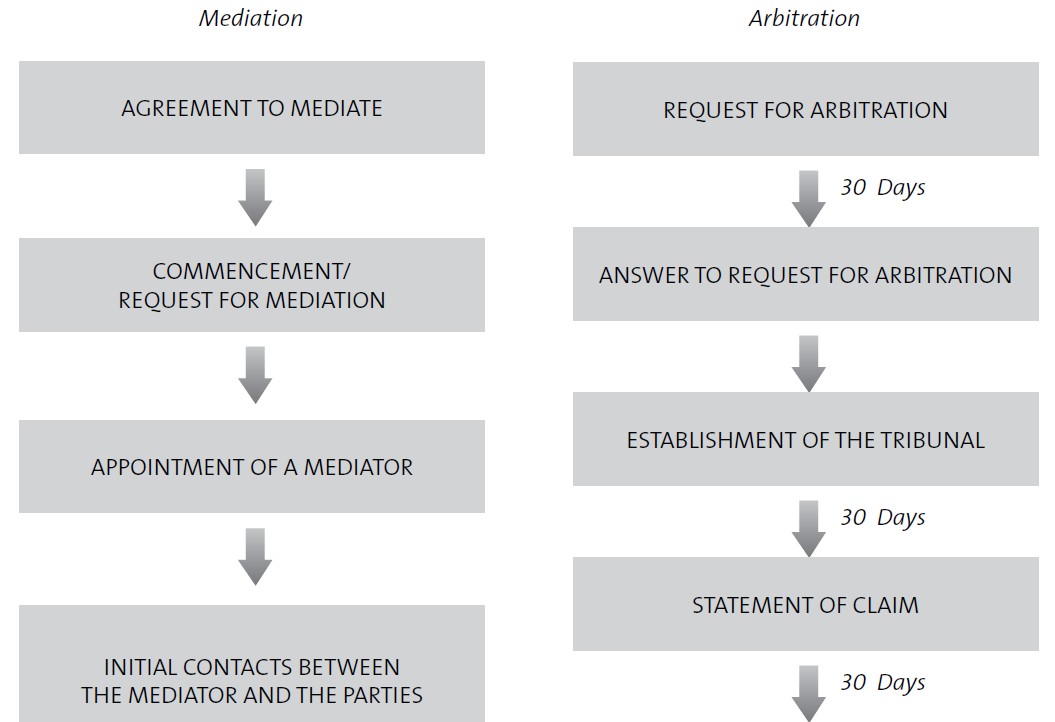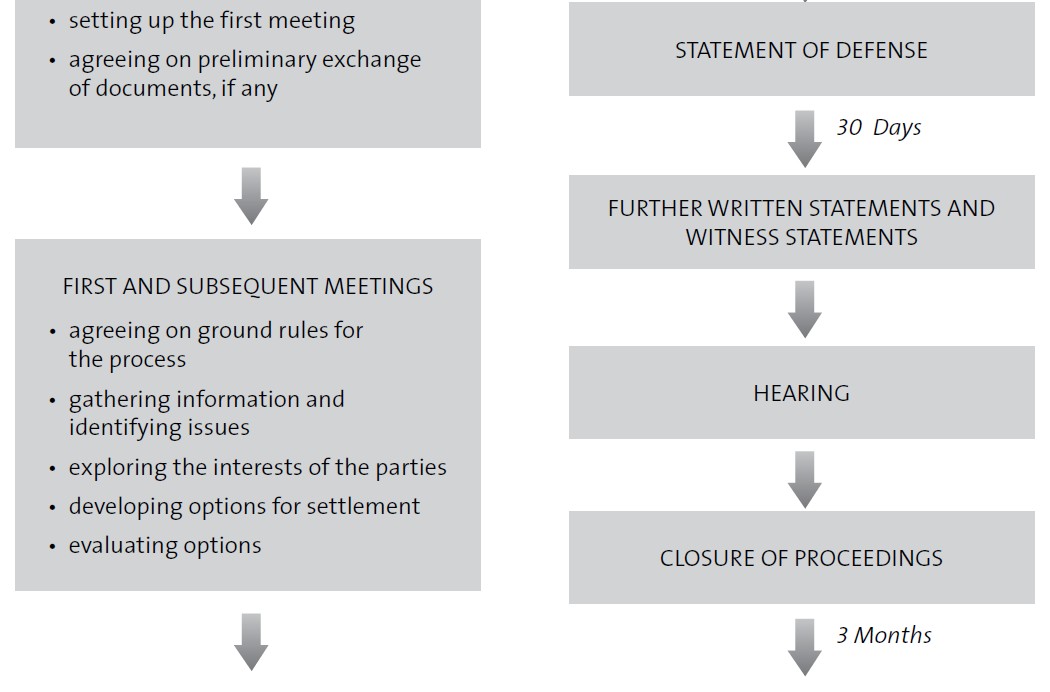- Send Cease and Desist Letter
- Negotiate or Enter into Licensing Agreement
MEDIATION
- Introduction of a neutral third party who seeks to facilitate agreement between the disputants.
- Comparatively quick and inexpensive.
- Success, however, is largely dependant on the interpersonal skills, experience, creativity, and professional stature of the mediator.
- While a mediator cannot force the parties to settle, a mediator whose opinions are highly valued and, hence, accepted by both disputants, may succeed in bringing them to a resolu-tion.
- In general, however, mediation is not highly regarded, as the success rate is low.
ARBITRATION
- Introduction of a neutral third party (most often a group of three neutral parties) into the dispute.
- Arbitration is consensual: requires that parties agree to have their dispute referred to an arbitrator.
- Where a mediator seeks to facilitate resolution, an arbitrator imposes one.
- Arbitration is final in that it is, for all practical purposes, unappealable.
- Arbitrators are not required to state the reasons or basis for their decision, nor are they obligated to follow the law, either statutory or precedential, substantive or procedural (hence the term, an arbitrary decision).
- In many respects, arbitration is even more unpredictable than litigation.
- Arbitration is less costly and time consuming than litigation, but it is far from rapid or inexpensive.



PRIVATE TRIAL
- The least utilized and most varied category of alternative dispute resolution devices.
- At one extreme, the parties retain a retired judge, who tries the case exactly as if it were being prosecuted within the judicial system. Because the judge has only one case on his or her docket, the matter progresses much more rapidly than it would had it been brought to court.
- At the other extreme, in the mini-trial, each side is given a limited period of time to present its case, after which the judge, or sometimes a panel of judges, renders a decision.
- Private trials offer the considerable advantage of a reasoned opinion. However, since the decision is unappealable, the possession of a written opinion may be of little consolation to the losing party.
- Private trials are comparatively quick and economical, especially the mini-trial, although the degree of formality (along with the cost and duration) tends to increase in proportion to the stakes at risk